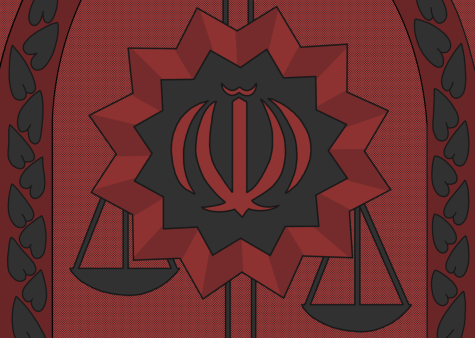Opinion: ‘No compulsion in religion’ is something the Islamic Republic of Iran forgot
November 1, 2022

Directly from the Quran, Surah Al-Baqarah Ayat 256 says, “Let there be no compulsion in religion, for the truth stands out clearly from falsehood.”
Standing side-by-side with the women in Iran, many Muslims worldwide know the “Islamic” laws the Iranian government has imposed are hypocritical to the true teachings of Islam. Iran has effectively blurred the line between religion and culture, convincing itself that these compulsory laws of women covering up and wearing a hijab are necessary.
Islam was one of the first religions to teach gender equality. Countries like Iran are actively working against the values of Islam to force women to cover themselves more modestly or risk facing arrest, torture and even death, which has been seen in the cases of 22-year-old Mahsa Amini and 16-year-old Nika Shahkarami.
In Iran, women who have reached the age of puberty are required to cover themselves modestly in a head covering and loose clothing. Iran’s “morality police” or Guidance Patrol is a unit of Iran’s police force tasked with enforcing the Islamic dress code in public.
According to NPR, morality police in Iran were established in the ’90s after the Iran-Iraq War. But even before the morality police were officially created dating back to 1979, there was a great amount of pressure on women, from the self-proclaimed morality police who verbally and physically harassed women on the street who they deemed immodest.
As a Muslim woman who wears hijab, I show my full support for these women standing up for their beliefs.
What Iranian women are protesting against is not the hijab, but forced covering and modesty and the oppressing laws that do not allow Muslim women to go through their journey of Islam on their own terms.
The many years of morality police in Iran have resulted in murders and missing person reports of women across the country. These violent and cruel acts done by the groups in power violate the United Nations Human Rights values and are dismissive of what Islam teaches about modesty.
It is obligatory for Muslim women to wear a hijab, and with that comes a sense of modesty that compliments the hijab, like loose-fitting clothes and the covering of the body from one’s neck to their ankles. Covering ones “awrah,” which translates to intimate parts of the human body, is mandatory.
Although modesty is obligatory in Islam, it is a Muslim’s own journey to go through. The forceful covering of Muslims is not permissible in Islam, and the morality police in Iran along with the self-proclaimed morality police on social media harass Muslim women, telling them to either wear a hijab “correctly” or take it off. Some of these online accounts go as far as calling them non-believers. In Islam, Muslims can advise each other to act more pious, whether through appearance, words, occupation, or more. Where it becomes non-permissible is when you are demeaning or discriminating against someone to act the way you want them to.
What Muslim men also forget is that awrah is not only made for women. While many people think there is an extreme emphasis on modesty for women, in Surah Al-Nur, Ayat 30, it says, “Tell believing men to lower their glances and guard their private parts: that is purer for them. God is well aware of everything they do.”
The awrah for men is from the navel to the bottom of the knees, and because clothes like shorts that fall above the knees and the normalcy in men forgoing shirts at the beach, men covering their awrah is something the younger generations of Muslims are not taught or find dismissible.
I have built a great level of admiration for the women in Iran standing up for their freedom, knowing the laws they are pressured to follow are not true to them. If the Islamic officials in the Iranian government reflected on the religion, they would know forceful laws and the hundreds of tragic deaths in Iran are not justified in our religion and do not represent the beauty of Islam.







